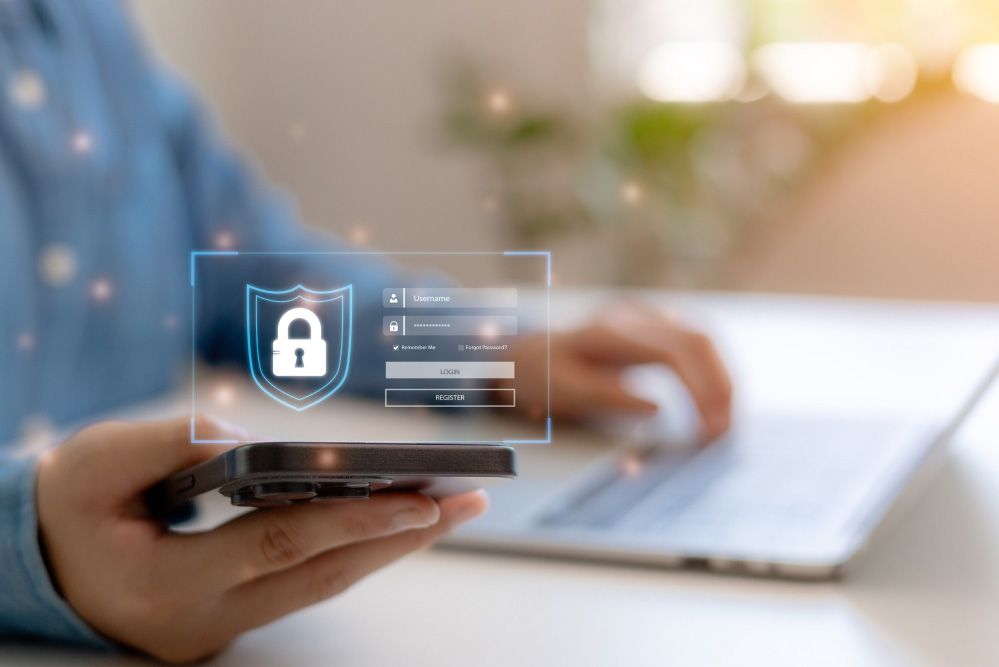These days, almost everything can be done using the internet, whether shopping, banking, learning, and communicating. While this helps save a lot of time, one should be careful when sharing information online. If not, one may be susceptible to cybersecurity threats like phishing, data pilferage, and viruses, which can lead to a loss of money and cause unnecessary inconvenience. Luckily, there are a few online security measures to avoid falling prey to such attacks.
Use a VPN
Almost all internet connections are unsafe, whether at homes, offices, or cafes. Cyber attackers can easily hack into the network and gain access to the devices connected to it. Consequently, they can carry out spoofing attacks, attacker-in-the-middle attacks, hijacking attacks, and sniffing attacks.
Installing a Virtual Private Network (VPN) is one way to prevent intrusion and attacks when using an internet connection. A VPN encrypts the user’s IP address, making it difficult for someone to access their device without permission. It also encrypts the user’s internet communications, making it impossible for hackers to gain access to social media accounts and chats.
Installing a VPN is quite easy. All one has to do is visit a VPN provider’s website, download the VPN app, and follow the setup instructions. One can compare different VPN apps that prevent online tracking and choose a service that’s the most reliable. Most VPNs have a button to activate and deactivate the service wherever required.
Encrypt data before sharing
Individuals must be careful when sharing sensitive information like bank statements and legal documents online. If one’s network is hacked, this information can land in the wrong hands and be misused. One way to prevent this from happening is to encrypt the data before sharing it with others. Several encryption tools can be used for this purpose.
Data encryption tools are easy to use. One simply has to select a file and set a password. Once encrypted, the file can be shared online via email or another medium. When users need to regain access and download files, they can provide their password to the tool to decrypt their data into its original form.
Like VPNs, several encryption tools are available for download. It’s important to research and choose a tool with a strong encryption algorithm and an easy-to-use interface.
Use standard privacy protection tools
Besides VPNs and encryption tools, one can consider using anti-virus scanners, firewalls, and anti-spyware to stay safe online. Anti-virus scanners help detect and delete malware from the device. Firewalls, on the other hand, create a barrier to filter out unwanted traffic from accessing the network. Anti-spyware tools help delete programs that secretly monitor a user’s online activity. Some online privacy protection tools provide all these features, so one does not need to install separate software.
Avoid using public Wi-Fi
Connecting to public Wi-Fi is quite useful when on the go. Some public Wi-Fi networks offer high-speed internet connectivity, so users save money on extra data on their cellular plans. However, connecting to such a network can be risky. Most public Wi-Fi networks in restaurants and cafes are unsecured, meaning hackers can easily take control of such networks and, thus, the devices connected to them. After gaining access, hackers can steal a user’s sensitive information and passwords and even install malware on their devices to track their activity.
The risk is not limited to public Wi-Fi networks. Certain malicious software threats are designed to exploit a device’s Bluetooth settings and make it accessible to any passersby. So, to stay clear of such threats, one must not only avoid public Wi-Fi but also turn off their Bluetooth and hotspot networks when not in use.
Set strong passwords
This online privacy protection tip may seem obvious, but many still overlook it. An internet user’s first line of defense in data security is a strong password. Ideally, people should set passwords using unique combinations of letters, numbers, and special characters. Such passwords must be set for all accounts, including banking portals, email accounts, and social media accounts. One should also update the passwords from time to time to make it harder for hackers to crack them and access the sensitive information stored in linked accounts.
While strong passwords are important, one must avoid saving their passwords on web browsers. Doing so makes it easier for hackers to access them and steal sensitive information. Instead of saving passwords on a web browser, one can use a password manager. A password manager helps people not only store passwords safely but also generate complicated passwords.
Update mobile apps
Mobile apps upgrade their security protocols from time to time to make it difficult for hackers to access them. This is why updating such apps regularly is highly recommended. Updating an app may seem like a waste of time, but it is one of the most important data security best practices.
Some other ways to protect personal information and privacy online include using secure cloud storage, enabling multi-factor authentication, and opting out of ad personalization.
